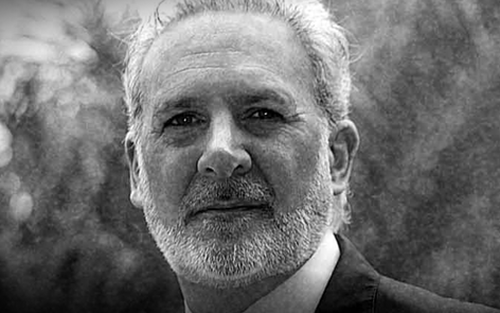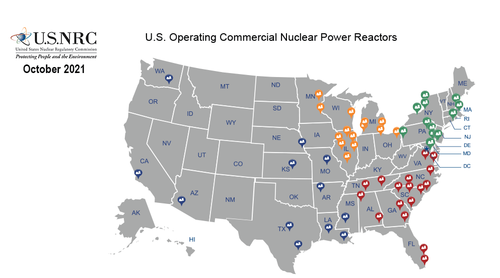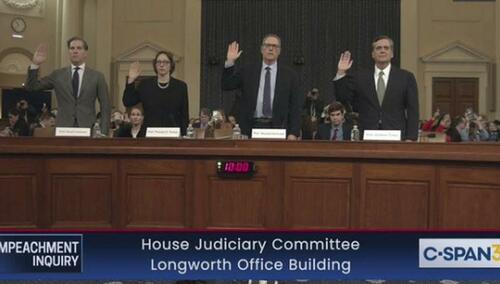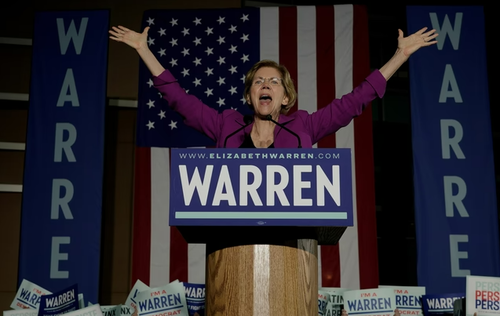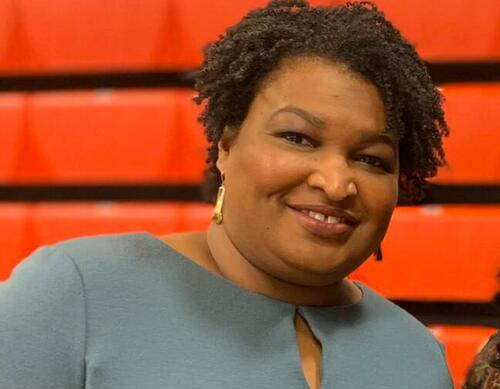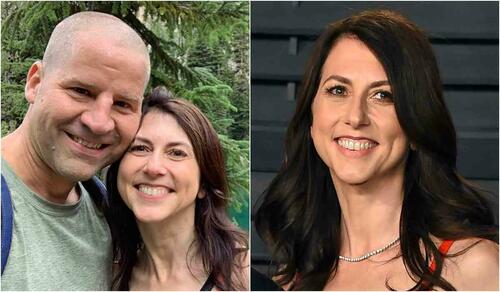From Stubbs v. Gerken, decided today by Judge Sarah Merriam (D. Conn.):
Plaintiffs Sierra Stubbs and Gavin Jackson …, each of whom was a student at Yale Law School, bring this action alleging, in sum, that two deans of the Yale Law School, along with the Law School’s Director of Diversity, Equity and Inclusion, “worked together in an attempt to blackball” plaintiffs from the prestigious job opportunities that are often available to Yale Law School students and graduates….
For purposes of deciding the Motion to Dismiss, the Court presumes the following factual allegations set forth in the Second Amended Complaint to be true….
Events Leading to the “Dossier”
Stubbs and Jackson each first met Professor Amy Chua … when each was enrolled in Chua’s International Business Transactions course. Chua “has served as an important mentor for her students, many of whom successfully obtain prestigious [judicial] clerkships.” In September 2018, well before Stubbs and Jackson met Chua, Gerken, the current Dean of YLS, began “publicly criticizing Chua[.]”In “an email to all members of the [YLS] community[,]” Gerken expressed “‘enormous concern'” about “‘allegations of faculty misconduct’ supposedly against Chua[.]” {The allegations against Chua included claims that she had “given advice on dress or appearance to [judicial] clerkship candidates preparing for interviews[.]”} It was “reported” that in 2019 “Chua had entered a ‘no-socializing’ agreement with the University whereby she agreed not to socialize with students off-campus.”
In February 2021, plaintiffs “separately attended Zoom ‘office hours’ with Chua to discuss their coursework.” These conversations “would also cover career discussions and any concerns that [plaintiffs] voiced about the University.” Such concerns included those of Jackson, who “struggled with what he felt was a lack of institutional support for students of color, which ended with his frustrated resignation from the board of the Yale Law Journal.” Jackson’s resignation “received media coverage[,]” which “caused” him “to face significant hostility at the school.” Chua was “in a unique position to offer [Jackson] guidance on these issues[,]” having been subject to “race-based, online instigated hostility, as well as being one of the few faculty members of color at” YLS.
Because of the “sensitive nature of the subject,” plaintiffs “wished to discuss their issues with Chua in person.” To avoid meeting in public[,]” plaintiffs “and Chua decided to meet at Chua’s home[.]” Plaintiffs met with Chua at her home on two occasions in February 2021 and March 2021. It was at this time, beginning in February 2021, that plaintiffs “became embroiled in Gerken and [Associate Dean of Student Affairs] Cosgrove’s apparent vendetta against Chua.” …
The “Dossier” and the Aftermath
Plaintiffs’ meetings with Chua “became [the] subject of pernicious law school gossip[,]” including a “20-page document, the Dossier (Ex. A), that purported to document the ‘secret dinner parties’ that Chua was supposedly hosting with [plaintiffs], and unidentified federal judges.” The Second Amended Complaint alleges that the Dossier “claims that [plaintiffs] had ‘repeatedly lied’ about their experience as students of color at the Law School, and further ‘repeatedly lied’ about the existence of the secret dinner parties, before supposedly admitting their existence to the Dossier’s author[.]”The Dossier also “denounced” plaintiffs “for ‘deliberately enabling’ a ‘secret atmosphere of favoritism, misogyny, and sexual harassment.'” “The Dossier eventually gained such wide circulation that it became the subject of investigative reporting from” several national news outlets.
Plaintiffs “became aware of the Dossier in late April 2021, when it had begun to circulate among the [YLS] student body.” On April 23, 2021, Cosgrove and Eldik, the Director of Equity, Diversity and Inclusion at YLS, contacted plaintiffs about the Dossier. “Cosgrove and Eldik 7pressured [plaintiffs] to make a formal statement confirming the allegations against, and lodge their own formal complaint, against Chua.” Despite plaintiffs “repeatedly denying the Dossier’s assertions, Cosgrove and Eldik pressured [plaintiffs] to make … false statements against Chua.”
In communications with Stubbs, Cosgrove and Eldik made reference to “the ‘effort against Professor Chua’ and insisted that if [Stubbs] would ‘just give them’ a statement, they would have ‘enough’ against Chua.” Plaintiffs “consistently refused to make false statements, and instead repeatedly asked Cosgrove and Eldik for assistance against the troubling invasion of privacy and resulting harassment that they suffered.” “Cosgrove and Eldik ignored these requests … and discouraged [plaintiffs] from filing a formal complaint concerning the harm” caused by the Dossier.
During a call among Cosgrove, Eldik, and Stubbs, Eldik told Stubbs “that the Dossier would likely end up in every judges’ [sic] chambers, following her even after she graduates, effectively sabotaging any hopes of her securing a clerkship whether she applied now or in the future.” In a similar call among Cosgrove, Eldik, and Jackson, “Eldik and Cosgrove strongly suggested that [Jackson] should not apply for a clerkship in the summer of 2021 because of the Dossier’s wide publicity.” For these reasons, “[i]t was suggested” that plaintiffs “cooperate by making a statement against” Chua.
“Cosgrove also directly threatened [Stubbs], claiming that [YLS] was receiving complaints about her potentially serving as a Coker Fellow due to the Dossier, and further suggested that such complaints would be moot if [Stubbs] made a statement against Chua.” Cosgrove thereafter told Stubbs that if Stubbs “accepted a Coker Fellowship with the professor—despite [Stubbs’s] repeated denials that she had received an illicit offer from the professor—Cosgrove or another member of the [YLS] administration would approach the professor with the allegations.”
Jackson likewise denied the claims in the Dossier that “the [P]rofessor had extended him an illicit Coker Fellowship offer.” Jackson “asked Cosgrove and Eldik to help him deal with the false rumors being spread by other students to the contrary,” but “Cosgrove and Eldik indicated that they were unaware of any complaints or rumors to that effect … and insinuated that they would require concrete proof of this harassment before assisting” Jackson. “When [Jackson] informed Cosgrove and Eldik about his concerns regarding the lies and misrepresentations included in the Dossier, it was suggested to [Jackson] that unless he filed a complaint against Chua, the administration could not effectively protect him from further harassment.”
In April 2021, Stubbs, “who was a student in Gerken’s academic clinic and … writing a lengthy paper under Gerken’s direct and personal supervision, sought Gerken’s advice in dealing with the Dossier.” Gerken “advised [Stubbs] to ‘be candid'” about the Dossier with faculty members, including Cosgrove and Eldik. Stubbs “explained to Gerken that the allegations in the Dossier were false and questioned why her own candor was at issue.”
Thereafter, “Gerken and Cosgrove personally approached the [P]rofessor, who was in the process of hiring Coker Fellows” to “dissuade him from offering a Coker Fellowship to” either plaintiff and to “convince him that [plaintiffs] were lying about their interactions with Chua, making them untrustworthy and unsuited for employment, despite the [P]rofessor already employing [plaintiffs] as his research assistants.” Gerken and Cosgrove showed the Professor “a copy of the Dossier that Cosgrove had personally marked up with highlighting and annotations to show where Cosgrove believed that [plaintiffs] were lying.” “Cosgrove did not try to investigate the specific allegations contained in the Dossier[,]” even though plaintiffs “repeatedly informed her that” it contained “lies and misrepresentations.” Plaintiffs assert that “[t]hese actions constituted improper retaliation[]” as defined in the University’s Policy Against Discrimination and Harassment (hereinafter the “Policy”).
As a result of defendants’ actions, plaintiffs have suffered “significant harm[,]” including “significant career damage[.]” Plaintiffs “did not apply for any judicial clerkships, and their ability to form and maintain relationships with their peers has also been irreparably and permanently stunted.” Plaintiffs have “suffered insomnia, anxiety, nausea, and loss of appetite.”
The court allowed the plaintiffs to go ahead with their intentional interference with prospective business relationship claim, which has as its elements, “(1) a business relationship between the plaintiff and another party; (2) the defendant’s intentional interference with the business relationship while knowing of the relationship; and (3) as a result of the interference, the plaintiff suffers actual loss”:
{Plaintiffs contend that they “have pleaded the specific relationships that were harmed: the Coker Fellowship with the Professor and federal clerkship opportunities[.]”} Defendants concede that plaintiffs have “plausibly allege[d] a business relationship with the Professor.” … [P]laintiffs have [also] stated a claim with respect to the lost clerkship opportunities. Here, drawing all inferences in favor of plaintiffs, plaintiffs have alleged that defendants knew of their prospective relationships with federal judges and sought to specifically target those relationships by threatening that the Dossier would “end up in ‘every judges’ chambers[.]'” …
[D]rawing all inferences in plaintiffs’ favor as to lost clerkship opportunities, plaintiffs have plausibly alleged “that, except for the tortious interference of the defendant[s], there was a reasonable probability that the plaintiff[s] would have” been hired as federal judicial law clerks. As “compelling candidates” from YLS, it is reasonable to infer that but-for defendants’ interference, plaintiffs would have applied for, and been hired as, federal judicial law clerks. At this early stage, this is sufficient to plead actual loss.
But the court rejected plaintiffs’ breach of contract (and promissory estoppel) claim that was based on a Yale Anti-Retaliation Policy, because “The events in question occurred before the Policy on which plaintiffs rely was adopted,” and in any event,
The breach of contract claim also fails because the conduct alleged in the Second Amended Complaint does not fall within the scope of the Policy that was allegedly breached. Defendants attach a copy of the Policy to their Motion to Dismiss…. The plain language of the Policy prohibits retaliation in response to complaints of discrimination or harassment based on a “protected characteristic” as that term is defined in the Policy…. The allegations [in the Second Amended Complaint] do not assert retaliation because plaintiffs reported racial discrimination and harassment. To be sure, the allegations of the Second Amended Complaint suggest an undercurrent of plaintiffs’ concerns regarding the treatment of minority students and professors at YLS. The Second Amended Complaint, however, alleges that defendants retaliated against plaintiffs because plaintiffs refused to be complicit in the alleged vendetta against Chua, not because plaintiffs reported concerns about racial discrimination and harassment….
The court also rejected plaintiffs’ defamation claims:
[T]he Court finds that the claim in the Dossier that plaintiffs “repeatedly lied[]” [about the dinners] is the type of statement that could constitute defamation per se….
Taken in the context of the legal profession, where character reigns supreme and is rigorously verified before admission, a statement of fact that a person “repeatedly lied” could undoubtedly “injure a man in his profession and calling[.]” This statement gives rise to a presumption of “injury” to plaintiffs’ “reputation … such that plaintiff[s] need neither plead nor prove” the injury in order to state a claim for defamation.
However, the allegations of the Second Amended Complaint do not assert that defendants conveyed objective facts, sufficient to constitute actionable defamation…. The Second Amended Complaint alleges that Gerken and Cosgrove approached the Professor with a marked-up version of the Dossier to show the Professor that Cosgrove “believed” plaintiffs were lying about certain matters, in an attempt to dissuade him from selecting plaintiffs for a Coker Fellowship…. A belief is not “[a] statement [that] can be defined as factual” because it does not “relate[] to an event or state of affairs that existed in the past or present and is capable of being known.” Rather, this statement, given the circumstances in which it occurred, could only constitute an evaluative, “personal comment about another’s conduct, qualifications or character that has some basis in fact[,]” which is non-actionable opinion.
Plaintiffs assert that Gerken and Cosgrove “proceeded to share the Dossier as a fact they accepted as true” because they “refused to investigate[]” the allegations of the Dossier. Plaintiffs assert that the lack of investigation transformed the opinion into one that “impl[ied] knowledge of existing facts,” which “are not protected and can ultimately be considered as defamatory as pure factual statements.” The lack of investigation, however, does not transform opinion into fact. Nor does the failure to investigate mean that Cosgrove and Gerken accepted the statement as true. Rather, without an investigation, Cosgrove and Gerken were in no position to present anything as fact, and were accordingly limited to presenting their beliefs and other non-actionable evaluative opinions….
And the court also rejected plaintiffs’ disclosure of private facts, false light, and intentional infliction of emotional distress claims.
The post The Yaliest of All Torts: Wrongful Interference with Clerkship Opportunities appeared first on Reason.com.
from Latest https://ift.tt/Kia5ImJ
via IFTTT
